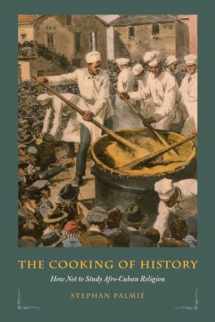
The Cooking of History: How Not to Study Afro-Cuban Religion
Book details
Summary
Description
Over a lifetime of studying Cuban Santería and other religions related to Orisha worship—a practice also found among the Yoruba in West Africa—Stephan Palmié has grown progressively uneasy with the assumptions inherent in the very term Afro-Cuban religion. In The Cooking of History he provides a comprehensive analysis of these assumptions, in the process offering an incisive critique both of the anthropology of religion and of scholarship on the cultural history of the Afro-Atlantic World.
Understood largely through its rituals and ceremonies, Santería and related religions have been a challenge for anthropologists to link to a hypothetical African past. But, Palmié argues, precisely by relying on the notion of an aboriginal African past, and by claiming to authenticate these religions via their findings, anthropologists—some of whom have converted to these religions—have exerted considerable influence upon contemporary practices. Critiquing widespread and damaging simplifications that posit religious practices as stable and self-contained, Palmié calls for a drastic new approach that properly situates cultural origins within the complex social environments and scholarly fields in which they are investigated.


We would LOVE it if you could help us and other readers by reviewing the book
Book review




